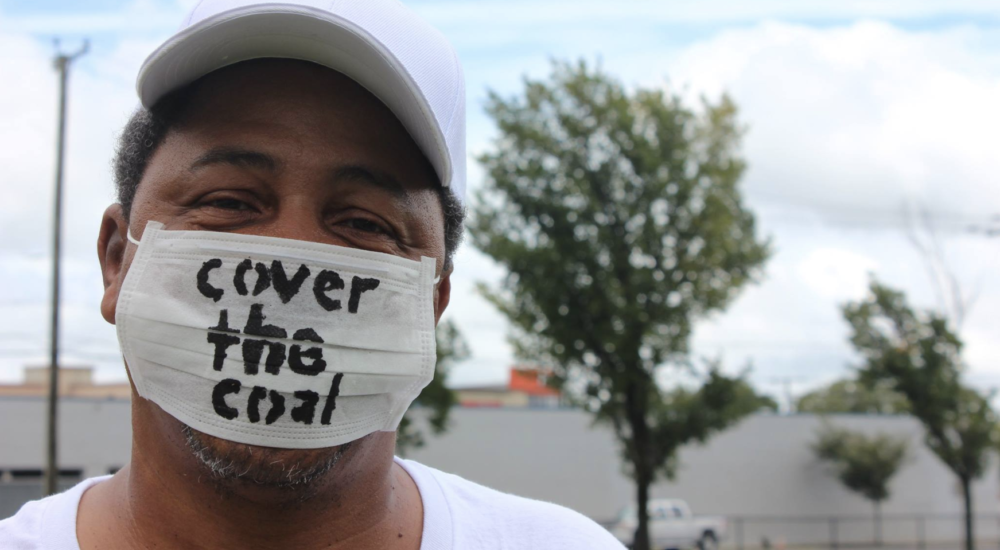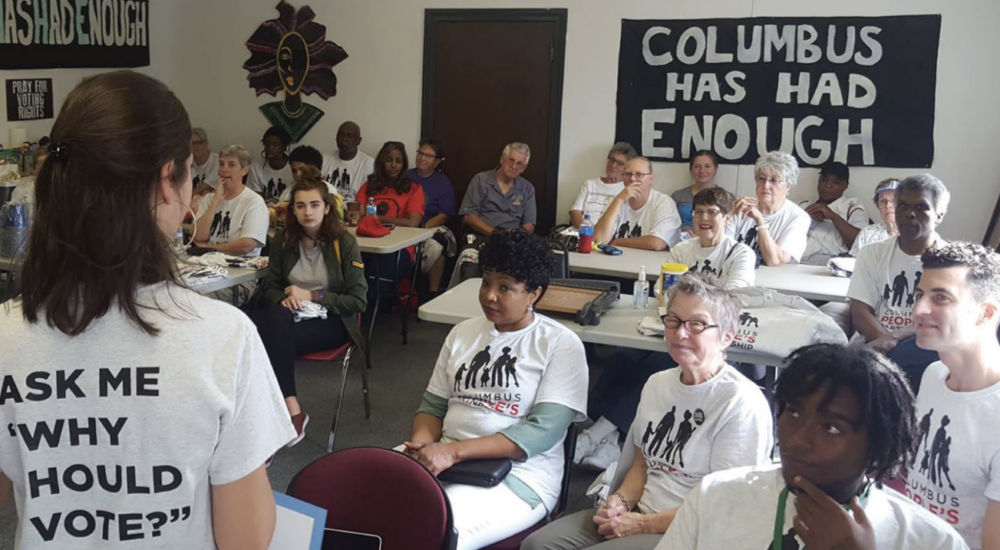Mobilizing Beyond the Moment
It is with alarming frequency that the state of Ohio has been purging registered voters from its rolls. If citizens haven’t cast a ballot for six years, or responded to a postcard mailed to their address, they can become disenfranchised. In 2016, some 144,000 voters were removed from Ohio’s three biggest counties due to inactivity. Most did not realize it until they were turned away from their polling places on Election Day
Led by Ohio’s Secretary of State, the policy is one of the most aggressive in the country, with voters in Democratic-leaning neighborhoods twice as likely to be purged than those in Republican areas. But, the practice hits low-income and African American neighborhoods hardest. In Cincinnati, since 2012, more than ten percent of registered voters living near downtown have been purged, compared to only four percent in the nearby suburbs.
The Ohio Organization Collaborative, a statewide coalition of 20 community organizations, has registered more than 250,000 Ohioans to vote since 2012. They’ve run large scale integrated voter engagement programs in low turnout communities, and their collective efforts across the state have increased municipal turnouts. Educating communities about the importance of exercising their voice through the ballot box is central to their mission of building leadership and power for all Ohioans.
“Parachute Projects” that are intended to mobilize communities right before elections don’t work. Sustained, deliberate relationship-building does.
Since its inception in 2007, the OOC has also been making strides in reforming Ohio’s criminal justice system. Together with Ohio Justice and Policy Center, they crafted and successfully passed legislation banning the check-box on all public job applications asking if applicants have a criminal record. They expanded funding that would allow non-violent offenders to enter rehabilitation programs instead of prison; and won 14 local fair hiring ordinances. Currently, almost 1 of every 4 people sent to Ohio prisons have violated their parole, and have not committed new crimes. In response, the OOC recently proposed legislation excluding incarceration as punishment for a parole infraction.
Headquartered in Youngstown, OOC’s silo of work is extensive. They are defending those with limited or no access to healthcare, protecting student debt holders and organizing residents in counties where industrial toxins are having a devastating impact on neighborhood children. They are skilled organizers, keenly aware that building a united movement across the state requires fortitude and continuity. “Parachute projects” intended to mobilize communities, and launched right before elections, don’t work. Sustained, deliberate relationship-building does.
As a coalition, their work is rooted in the belief that political and economic power will not be achieved by a single organization, championing a single issue. Member organizations have specific focus –farmers and low wage worker rights, immigration, health reform, race and gender equality. Leaders approach their work by connecting the issues, finding the intersections – and most importantly, by staying buoyant.
In 2018, the OOC collected over 730,000 signatures supporting an initiative aimed at reducing the prison population of low-level, non-violent drug offenders. The amendment failed to make it onto the ballot. But OOC was clear that they didn’t fail. In fact, they were just getting started. (501 words)
Ohio Organizing is a current Solidago grantee funded through our Resource Generation program. To learn more, visit www.ohorganizing.org



